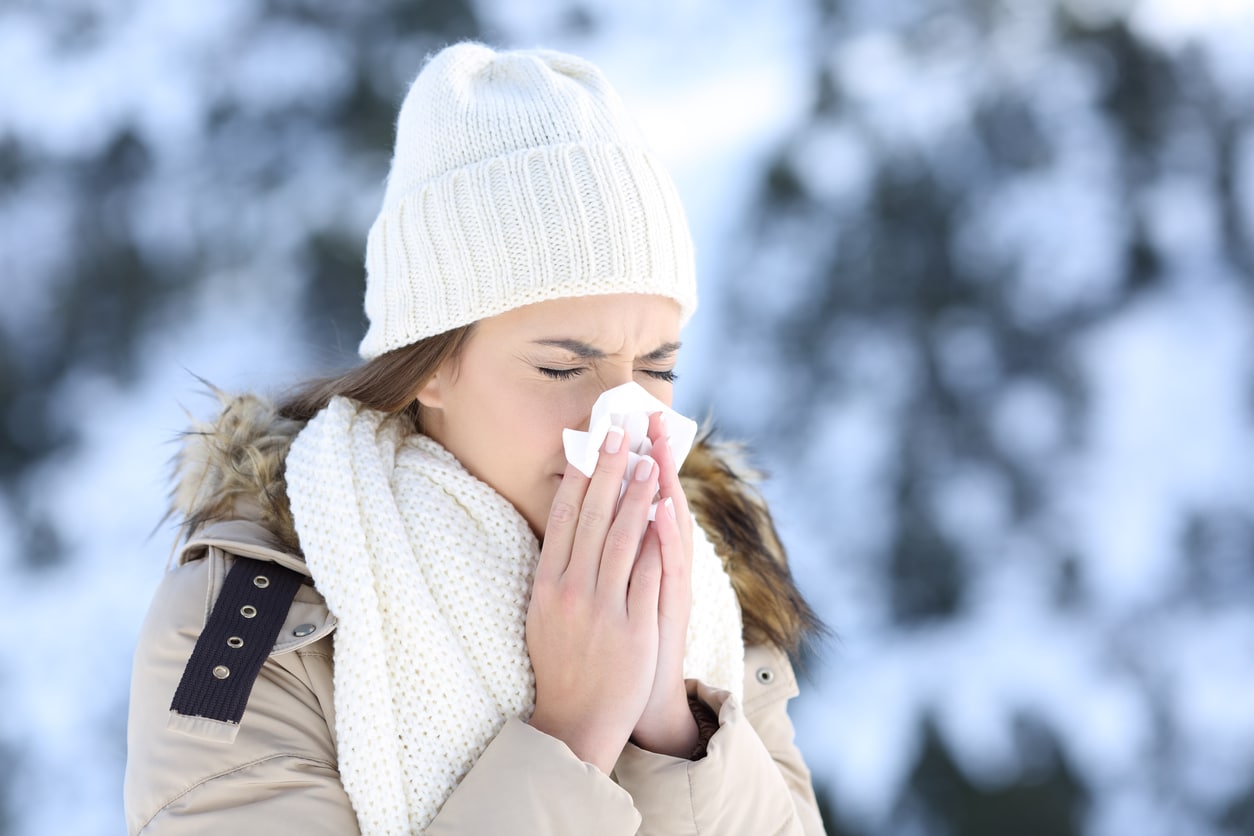When the weather starts getting colder, you may notice that a runny nose and itchy eyes become commonplace. These symptoms may arise in the winter for many reasons, including a cold or flu and a response to the cold air. Winter allergies are another common source of these symptoms.
Approximately 50 million people in the United States have an allergic reaction every year. If winter allergies are causing your runny nose and itchy eyes, you may notice other symptoms, including but not limited to:
- Sneezing
- Itchy skin or a rash
- Trouble breathing
- Sore throat
- Coughing or wheezing
Let’s look at some common winter allergy triggers and how you can manage them.
Common Causes of Winter Allergies

There’s little better than curling up on the couch on a cold winter night, sipping a warm cup of tea from The Ginger Room. While winter can be a cozy time, it can also expose you to more allergens than you might think. While there isn’t a lot of winter pollen floating around, your extra time indoors may leave you more exposed to indoor allergens, including but not limited to:
- Dust mites
- Mold
- Pet dander
Minimizing the amount of allergens in your home is a great way to manage your winter allergies.
Minimizing Allergens in the Home
Keeping a clean house is an excellent way to minimize allergens in the home. A few key areas to focus on include:
- Bathroom and kitchen. The bathroom and kitchen retain a lot of moisture in the winter. Moisture retention makes these rooms hotspots for mold growth. Running the exhaust fans in both rooms is a great way to prevent mold growth. Run the fan in the bathroom every time you shower and for thirty minutes afterward, and run the fan in the kitchen whenever you cook or notice moisture accumulating on the windows or near the appliances.
- Sweep, vacuum and dust. Dust mites love to gather on the carpeting, flooring and other hard surfaces. Sweeping, vacuuming and dusting at least once a week will help keep them at bay and minimize your allergies.
- Wash bedding. Washing your bedding at least once a week is another excellent way to minimize dust mites in the home.
- Bathe your pets. Bathing your pets weekly will help keep pet dander at bay. It is also best to avoid letting your pets into the bedroom or on couches, as dander can quickly accumulate on and stick to soft surfaces. If you are prone to pet dander allergies, consider getting a hypoallergenic pet.
For more information about allergy management techniques and options, contact ENT of Georgia North today to make an appointment with one of our specialists.